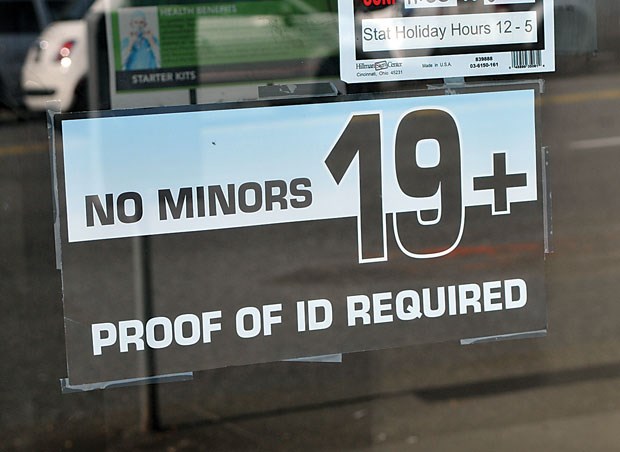With the popularity of electronic cigarettes — especially among youth — on the rise, the provincial government has introduced new legislation that stamps out the sale of these products to minors.
The ban comes as local health experts warn about the addictive nature and respiratory concerns associated with e-cigarettes — commonly perceived as a healthier alternative to smoking.
“The biggest concern that we have about the recreational use of e-cigarettes by young people is that they may be getting addicted to a highly addictive product, especially if that e-juice contains nicotine,” said Dr. Meena Dawar, medical health officer for Vancouver Coastal Health.
Under the new legislation introduced Thursday, e-cigarettes cannot be sold to anyone under the age of 19, or be used in workplaces, indoor spaces or on school grounds — essentially regulating them like regular cigarettes.
There are also changes expected to clamp down on the promotion and display of these products.
“We are very pleased with the proposed changes. We think that this is a fairly balanced piece of legislation because it protects youth against starting e-cigarettes and protects them against a recreational drug . . .” said Dawar.
In the meantime, the government has given businesses that sell e-cigarettes some breathing room to prepare for the changes.
The North Shore News approached two vape shops Friday in North Vancouver whose operators said they have a strict policy about not selling their e-cigarettes to minors.
“We are diligent about carding people,” said Dan MacDonald, co-owner, EZ-Vape North Shore. “They impose these regulations, but most credible vape shops were self-regulating anyway. Everybody kinda knew (government) regulations would come eventually, and . . . you don’t want to be known as the shop selling to minors.”
However, according to one local high school student, there is a convenience store in Lynn Valley that has no qualms about selling e-cigarettes to minors.
Argyle student Emily Hendriks said that store near her school is where all her classmates get their e-cigarettes.
The majority of Argyle students have tried smoking e-cigarettes, she said — some of them doing it inside and around the school property.
“My friend will just pull out his e-cig just in the middle of the hallway — but he will have to hide if a teacher is coming because he will get in big trouble,” said Hendriks.
Her story supports a recent Canadian Cancer Society study that found 5,000 children have already tried an electronic cigarette in Grade 6, and one in three high school students have already smoked them.
E-cigarettes are battery-operated vaping devices, which mimic the smoking by using an inhalation and heating process that creates a vapour.
The liquid solution or e-juice usually contains propylene or vegetable glycol, and can be combined with other ingredients, including nicotine, and flavours — often sweet-smelling varieties including chocolate and bubble gum.
“Youth can be using what they think is a fruity recreational drug but really they are getting addicted to nicotine. The vapour is probably much less harmful than tobacco smoke, but the point remains that it’s not safe,” said Dawar.
Hendriks agrees that her peers might be not aware of the ingredients inside the e-cigarette juices.
“Basically everybody thinks it’s just like inhaling water. I guess because they think e-cigs are safer than smoking,” said Hendriks.
Last spring Vancouver Coastal Health sent a letter to all local school districts recommending that e-cigs be banned on school properties.
Last month, the North Vancouver School District amended its smoking policy to forbid the use of e-cigarette-related products on school property.



